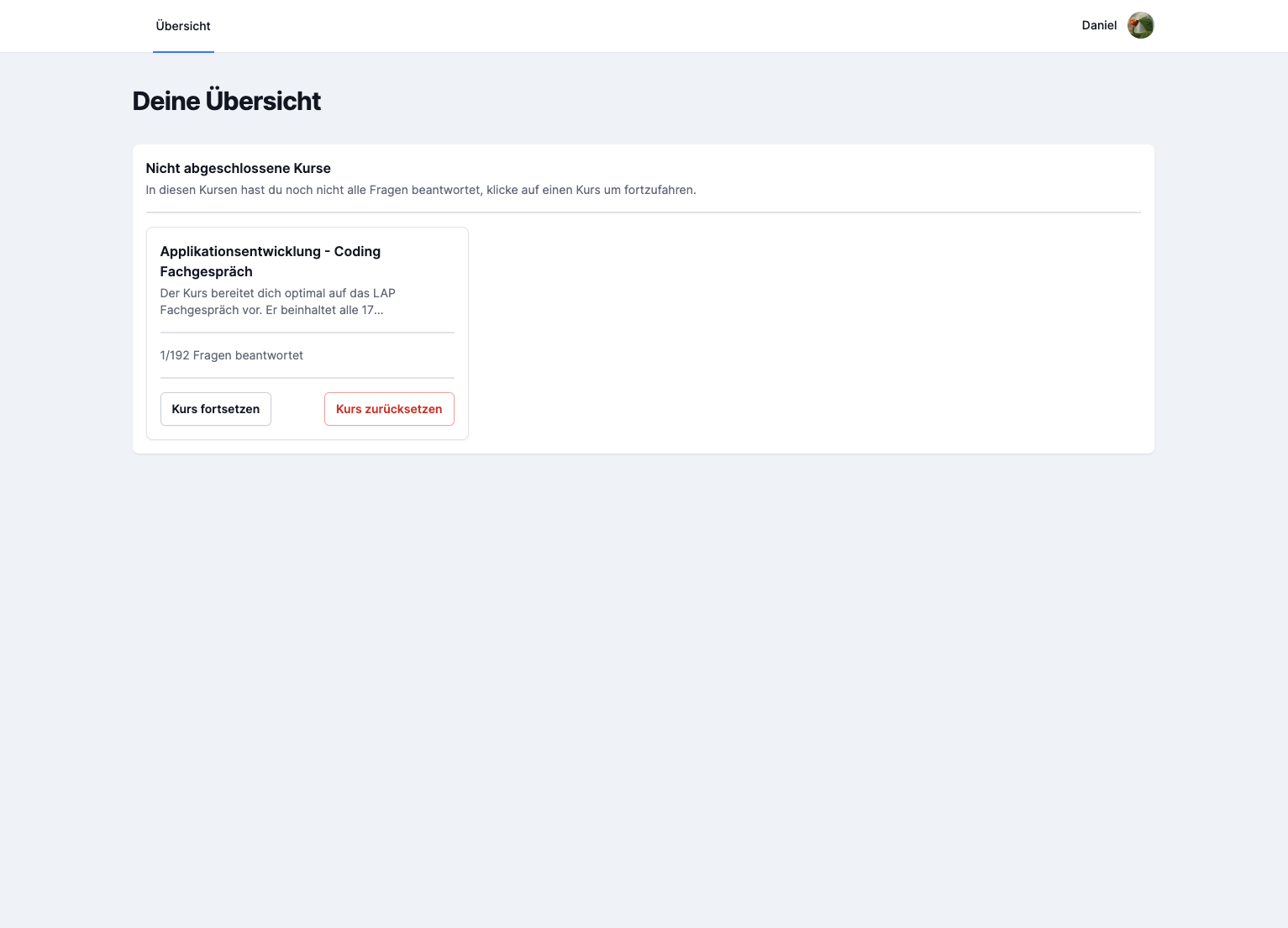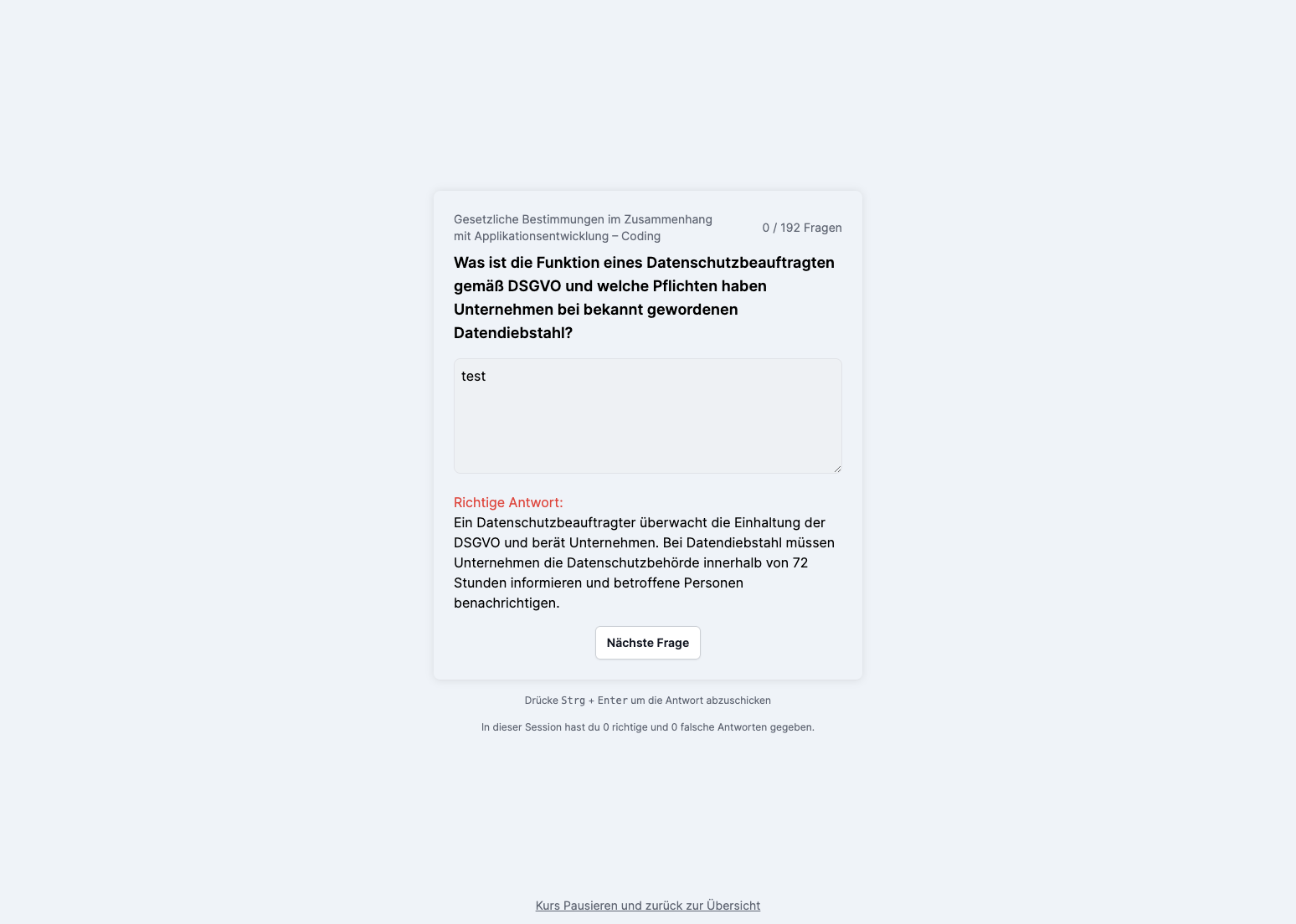
Educdia - Platform for Digital Courses
Educdia is an interactive learning platform with AI-powered question-answer system, based on a modern microservices architecture and utilizing GPT-4o for intelligent feedback.
Project Overview
Educdia is an advanced e-learning platform based on an interactive question-answer system. The platform was originally conceived as a personal learning tool for exam preparation and later expanded into a full-fledged application that allows users to create and complete their own courses.
System Architecture
The application is based on a modern microservices architecture with the following components:
- NextJS frontend with server-side rendering optimization
- RESTful API for course and user management
- Prisma ORM for type-safe database operations
- Kinde Authentication for secure identity management
- OpenAI API integration for AI-powered feedback
AI Integration and Learning Algorithm
The heart of Educdia is the integration of OpenAI's GPT-4o model, which functions as an intelligent examiner. The process works as follows:
- The user answers a question from the course
- The answer is sent to the OpenAI API, along with the context of the question and the expected learning outcomes
- The GPT-4o model analyzes the answer and generates structured feedback in JSON format:
{
"correct": false,
"answer": "Detailed explanation of the correct answer"
}
This structure allows for programmatic processing of the feedback and seamless integration into the learning flow. The implementation uses an optimized prompt engineering approach to ensure consistent and precise evaluations.
Data Model and Persistence
The data model was defined using Prisma Schema Language and includes the following main entities:
- User: User data and authentication information
- Course: Course metadata, descriptions, and configurations
- Question: Questions with metadata on difficulty level and categorization
- Session: Learning progress and interaction history
- Answer: User answers with AI evaluations and timestamps
The database migration and seeding processes were automated to ensure a consistent development and production environment.
Deployment and Infrastructure
The application is hosted on a Kubernetes cluster, which offers the following advantages:
- Horizontal scalability with increased user load
- Automated rollouts and rollbacks
- Self-healing infrastructure in case of component failures
- Efficient resource utilization through container orchestration
Technologies Used
- NextJS for frontend and API routes
- TailwindCSS with TailwindUI components for UI design
- Prisma as ORM for database operations
- Kinde Authentication for OAuth and user management
- MySQL as relational database
- OpenAI API (GPT-4o) for AI-powered answer analysis
- Kubernetes for container orchestration
Future Development
The following extensions are planned for upcoming versions:
- Implementation of an adaptive learning algorithm that prioritizes questions based on user progress
- Integration of follow-up questions for deeper understanding
- Development of a context generator that creates real-world application scenarios for abstract concepts
- Extension of analysis functions for detailed learning progress evaluations
Visual Representation




